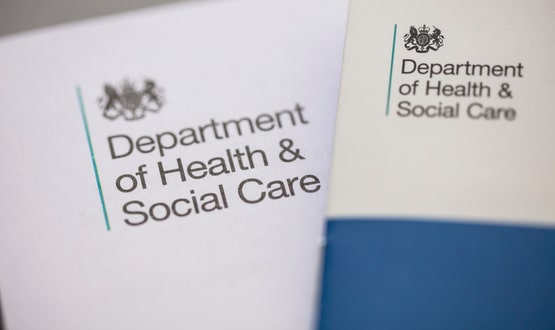Granger says final LSP contract will come when ‘right’
- 23 December 2003
The final local service provider (LSP) contract for the South of England will be signed in the New Year, when suppliers have "responded to treatment", says NHS IT director-general Richard Granger.
In a short interview with E-Health Insider on the day that two of the remaining three LSP contracts were signed Granger said he was more concerned about getting the deal right than meeting the Christmas deadline he had set for all seven National Programme for IT (NPfIT) contracts to be inked.
"I’ve had to decide between adhering to standards set and allowing a degree of slippage. I decided it’s much more important to get it right, and we will catch up," pledged Granger.
Asked when he expected the final LSP contract to be signed, he refused to be drawn beyond January. "We will enter into contracts that make sense to all parties. And it clearly didn’t make sense today."
Pressed further on the question of timing, Granger told EHI it would happen: "When they’ve [suppliers] responded to treatment." This treatment is understood to relate to the commitments on risk and liabilities firms must enter into to be compliant with the NPfIT contract conditions.
"When entering into tough contracts that place a significant level of short-term risk on finance and delivery required, it’s very important to make sure the prospective supplier meets the demands," said Granger.
He continued: "Bidders who are short-listed have a good opportunity to enter into substantive negotiations with the authority." He confirmed that the NPfIT would first look to reach agreement for the final LSP contract with the current short-listed suppliers, but if unable to reach an agreement could throw it open again to the total short-list of suppliers.
"We want to give bidders in the South the opportunity to get there… We want to be in the position to make hard choices." He added that the quality of bids, both in the South and across other regions, had been "extremely good".
The NHS IT director-general went on to state that he still intended to maintain contestability within the market, with more than one system available. "We would look to see efficient competition to maintain contestability." He went on to describe this as a "trade-off between efficiency and insurance".
Contestability, he pointed out, was an innovation introduced by the NPfIT and did not exist in other major public sector IT procurements like the Passport Office or Inland Revenue.
The NHS IT director-general was keen to highlight what he sees as the key achievement of the year-long procurement exercise: to commoditise the cost of clinical IT systems and fundamentally change the way it is procured and delivered. "The whole pricing algorithm for IT services in the health sector has been fundamentally and irrevocably changed, and we now have the opportunity to look at commodity priced services."
Questioned on how far he had been able to drive down software prices, Granger said that in January NPfIT would be carrying out an audit exercise to establish exactly how much had been saved by the national procurement, but he confirmed that "90% has been saved in some areas".
He was also at pains to highlight the efficiency savings that had been achieved by establishing a consolidation of requirements, and ending the system of individual trusts each carrying out their own local IT procurements "We’ve often seen trusts spending £4-5 million on purchasing activity in a year."
Asked to provide some detail on what will actually be delivered by LSPs, when they will deliver it and how much it will cost, Granger promised all would become clear in 2004. "As we move into 2004 implementation plans will drawn up by LSPs in partnership with the regional implementation directors… These will supersede the OBS (ICRS Output Based Specification), which will provide the national template."
Granger promised that 2004 will bring the answers NHS staff are looking for: "In 2004 there will come a point that people will have schedules of when they will receive systems, training and log-ins." The first early adopter sites will be for e-booking by summer 2004.
Questioned on whether elements of the ICRS OBS had been dropped during contract negotiations Granger declined to be drawn. When asked whether PACS/RIS is still covered by LSP contracts he confirmed they did form part of contracts, and fired a warning shot across the bows of PACS suppliers:
"PACS will benefit from some further discussion with suppliers. The pricing arrangements for PACS are something that concerns us. There are always options: you can buy from elsewhere, build your own – PACS suppliers might want to bear that in mind."
Finally, given his famous warning that he’d cancel Christmas if contracts were not completed in time EHI asked Granger whether Christmas would be happening in the Granger household this year. He replied: "I suspect there will be some turkey eating and some work."
Granger concluded: "I hope that people do get a good Christmas break as everyone has worked extremely hard. It’s been a fantastic team effort."




